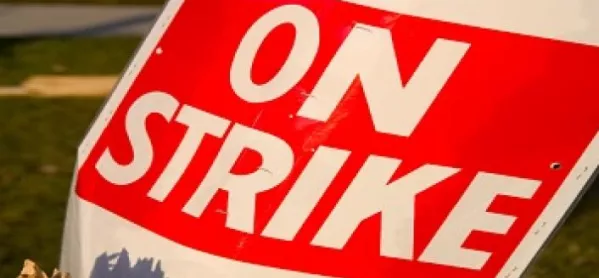Members of the national executive of the NEU teaching union’s NUT section are pushing for national industrial action over last week’s teacher pay award.
In a statement seen by Tes, at least 19 members of the body state their “total rejection of the teachers’ pay announcement”. And conversations with executive members have made it clear that strikes are being considered.
The statement says: “It is important to make clear that this is not an award that we can welcome and it does not represent a success for our members.”
It goes on to call for: “The preparation of an indicative and then, subject to enough support, a formal ballot of members for a campaign of national action in pursuit of our pay claim, fully funded, and a statutory limit on the working hours of teachers.”
But the language contrasts with that of Mary Bousted, joint general secretary of the NEU, from the ATL section of the union, who last week wrote that “we must not lose sight of some hard-fought gains in this pay round”.
Although she criticised the decisions not to fully fund the award or give the 5 per cent demanded by unions, and to deny more senior teachers a 3.5 per cent rise, she sought to highlight the positives.
She wrote “we have succeeded in getting the highest rise of the decade”, “we can see some key arguments won”, and “the government is recognising the importance of teachers and providing a special grant to schools specifically for pay”.
A week before the government announced the pay award, one NUT executive member, Dave Harvey, told Tes that industrial action was “on the cards” because of fears the government would not fund the pay award.
Teacher pay deal ‘unacceptable’
This week, he told Tes that the award, which includes £508 million of government funding and a real-terms pay rise for teachers on the main pay range, had increased the chances of strike action.
He said: “Perversely, it makes it more likely because, yes, a lot of teachers are getting 3.5 per cent, but it’s a minority.
“We think that something like two-thirds of teachers are on the upper pay spine or leadership spine, certainly over 60 per cent, and the reaction I’m picking up as national exec member, certainly from upper spine teachers, is that this is really unacceptable.”
He added: “I think the industrial action is still very much on the cards, more so.”
Legislation passed two years ago makes it harder to win a strike ballot.
Not only does a union need a turnout of at least 50 per cent; when it comes to public services such as schools, at least 40 per cent of all eligible members must also vote “yes”.
When the NUT balloted on strike action on pay and conditions in 2016, under the previous rules, turnout was 24.5 per cent, with 91.7 per cent of these voting in favour.
Ian Murch, who signed the statement from NUT national executive members, recognised the difficulties meeting the legal thresholds.
He said: “It’s very challenging, but the difference [compared to 2016] is that you know you need to meet that target now, and it’s not as if nobody has ever met the target. I don’t think it’s out of the question.”





